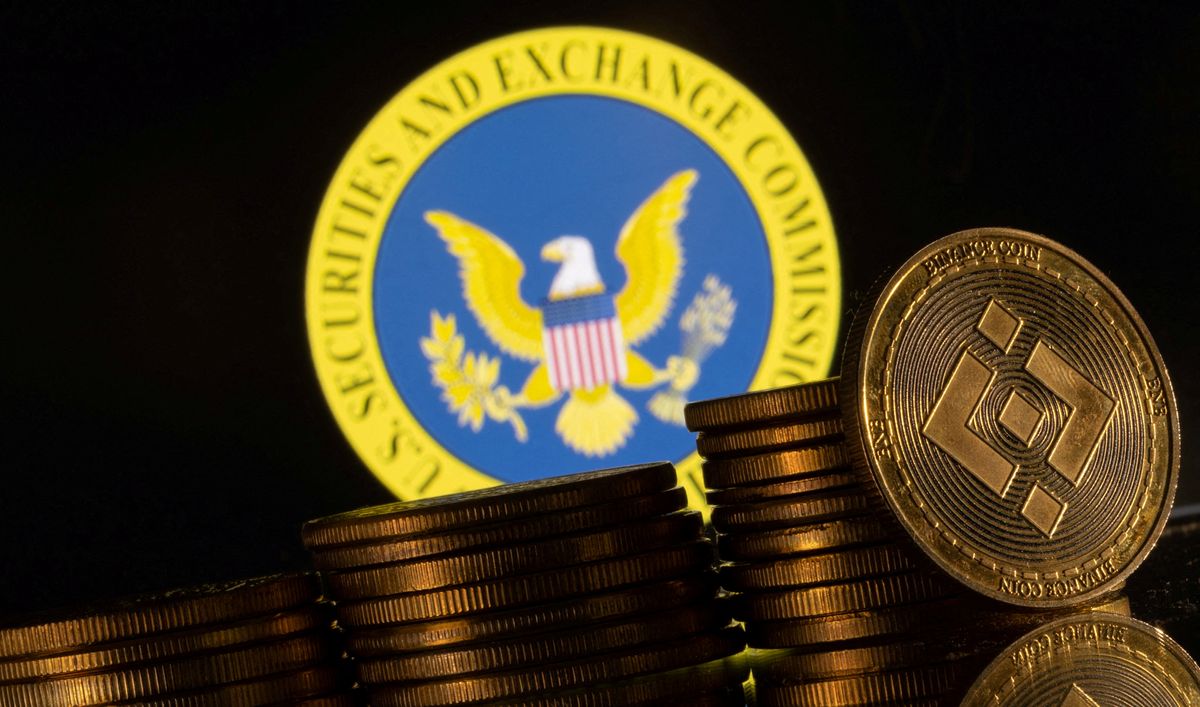Binance and Binance.US reach an agreement with the SEC
As we’ve reported before, there's been some heat in the crypto scene lately.

A few minutes every morning is all you need.
Stay up to date on the world's Headlines and Human Stories. It's fun, it's factual, it's fluff-free.
The backstory: As we’ve reported before, there's been some heat in the crypto scene lately. The US Securities and Exchange Commission (SEC) decided to take on two big names in the crypto world – Binance and Coinbase. First in the line of fire was Binance, known as the biggest crypto exchange in town, along with its founder, Changpeng Zhao.
According to the SEC, Binance allegedly lured US customers to trade on its unregulated international exchange, mixing investor money with its own stash and violated securities laws. The regulator said Binance used its US-based arm as a shield to dodge regulations and assist its top US customers in bypassing the rules while trading on the unregulated platform. The SEC also accused Binance of moving billions of dollars of customer funds to a bank account controlled by Zhao's entity, which then made their way to a third party for some crypto buying and selling action.
As for Coinbase, it got hit with a lawsuit, too. The SEC accused the exchange of playing the broker and exchange game without proper registration, singling out its prime brokerage, exchange and staking programs.
More recently: A couple of weeks ago, the SEC asked a federal court to freeze Binance's US assets. That included over US$2.2 billion in customer assets held as cryptocurrencies and around US$377 million in US dollar bank accounts. Binance.US, the exchange’s US unit, assured its users that their assets would remain safe and they could still deposit and withdraw funds as usual. It even mentioned it would defend itself in court, calling the SEC's move unwarranted.
But a few days later, Binance.US faced some challenges with its financial services providers due to the SEC action. That led the unit to stop accepting dollar deposits and shift toward becoming a "crypto-only exchange." The move would give customers until June 13 to pull out their funds.
The development: Now, Binance and Binance.US have hammered out a deal with the SEC. The deal says that until the lawsuit is settled, Binance.US will keep all the assets of its US customers within the country. But the agreement still needs the thumbs-up from a federal judge who's overseeing the case. If the judge gives the green light, only Binance.US employees will have access to those assets and the arrangement will avoid a total asset freeze.
According to US judge Amy Berman Jackson, Binance, BAM Management US, BAM Trading Services and Binance founder Changpeng Zhao need to bring back all the customer assets from Binance back into the US. As part of the deal, Binance.US is throwing in some extra moves to make sure Binance employees can't get their hands on private keys, wallets or the division’s Amazon Web Services tools. The SEC also reassured Binance.US customers that their assets would be safe and sound and they could withdraw them as usual.
Key comments:
“User funds have been and always will be safe and secure on all Binance-affiliated platforms,” said a spokesperson of Binance.
"Given that Changpeng Zhao and Binance have control of the platforms' customers' assets and have been able to commingle customer assets or divert customer assets as they please ... these prohibitions are essential to protecting investor assets," said Gurbir Grewal, director of the SEC's enforcement division, in a statement.
"Although we maintain that the SEC's request for emergency relief was entirely unwarranted, we are pleased that the disagreement over this request was resolved on mutually acceptable terms. User funds have been and always will be safe and secure on all Binance-affiliated platforms." said a spokesperson of Binance in a statement on Saturday.
"We allege that Zhao and Binance entities engaged in an extensive web of deception, conflicts of interest, lack of disclosure, and calculated evasion of the law," said SEC Chair Gary Gensler in a statement earlier this month.




Comments ()